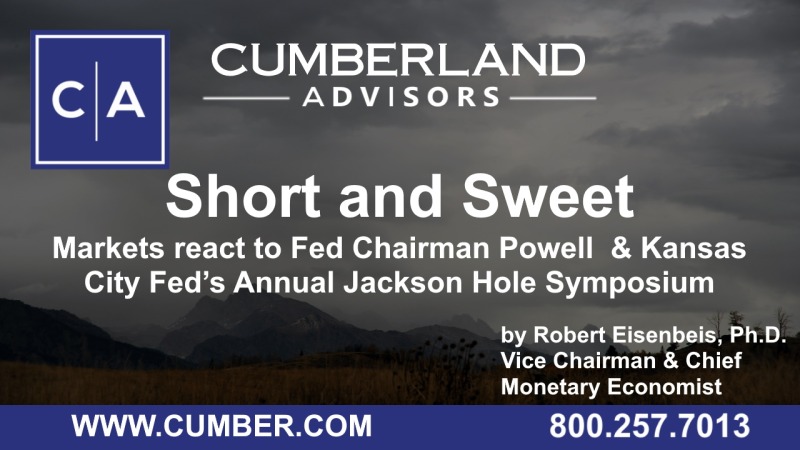Chairman Powell kicked off the Kansas City Fed’s annual Jackson Hole symposium on Friday and sent a strong, clear message.

First, price stability and getting inflation back to target is the Fed’s prime responsibility, and that goal is the FOMC’s “overarching focus right now.”
Second, getting the inflation rate back to target will take some time and will likely require a substantial period of sub-trend growth and “softening” of the labor market that will involve some pain.
Third, while the economy is slowing, the labor market is still strong, with substantial imbalances in labor demand exceeding available supply. However, July’s drop in inflation in no way signals what the Committee needs to see before concluding that inflation is on its way down.
Fourth, just because the policy rate is about where the Committee sees the neutral rate, that is not a reason to pause or stop the policy tightening. In fact, policy may have to be tight for some period of time. In fact, the June SEP suggests that the policy rate may have to be slightly below 4% through 2023. Indeed, President Mester, who is a voting member of the FOMC this year, stated at the conference after Chairman Powell’s speech that she felt the policy rate should be above 4% in order to achieve the Committee’s inflation objective.
Powell went on to discuss three important lessons from previous inflationary periods. He argued that central banks must assume prime responsibility for inflation. He also stated that keeping inflation expectations in line with policy objectives is a key objective. If decision makers expect inflation to accelerate, then this will affect business decision making in a way that undermines stable prices. Finally, he noted that central banks must be persistent until price stability is achieved.
Markets clearly heard the message and reacted accordingly. The Dow fell by over 1000 points and seemed to have finally realized that the Committee means business.
Robert Eisenbeis, Ph.D.
Vice Chairman & Chief Monetary Economist
Email | Bio
Links to other websites or electronic media controlled or offered by Third-Parties (non-affiliates of Cumberland Advisors) are provided only as a reference and courtesy to our users. Cumberland Advisors has no control over such websites, does not recommend or endorse any opinions, ideas, products, information, or content of such sites, and makes no warranties as to the accuracy, completeness, reliability or suitability of their content. Cumberland Advisors hereby disclaims liability for any information, materials, products or services posted or offered at any of the Third-Party websites. The Third-Party may have a privacy and/or security policy different from that of Cumberland Advisors. Therefore, please refer to the specific privacy and security policies of the Third-Party when accessing their websites.
Cumberland Advisors Market Commentaries offer insights and analysis on upcoming, important economic issues that potentially impact global financial markets. Our team shares their thinking on global economic developments, market news and other factors that often influence investment opportunities and strategies.

